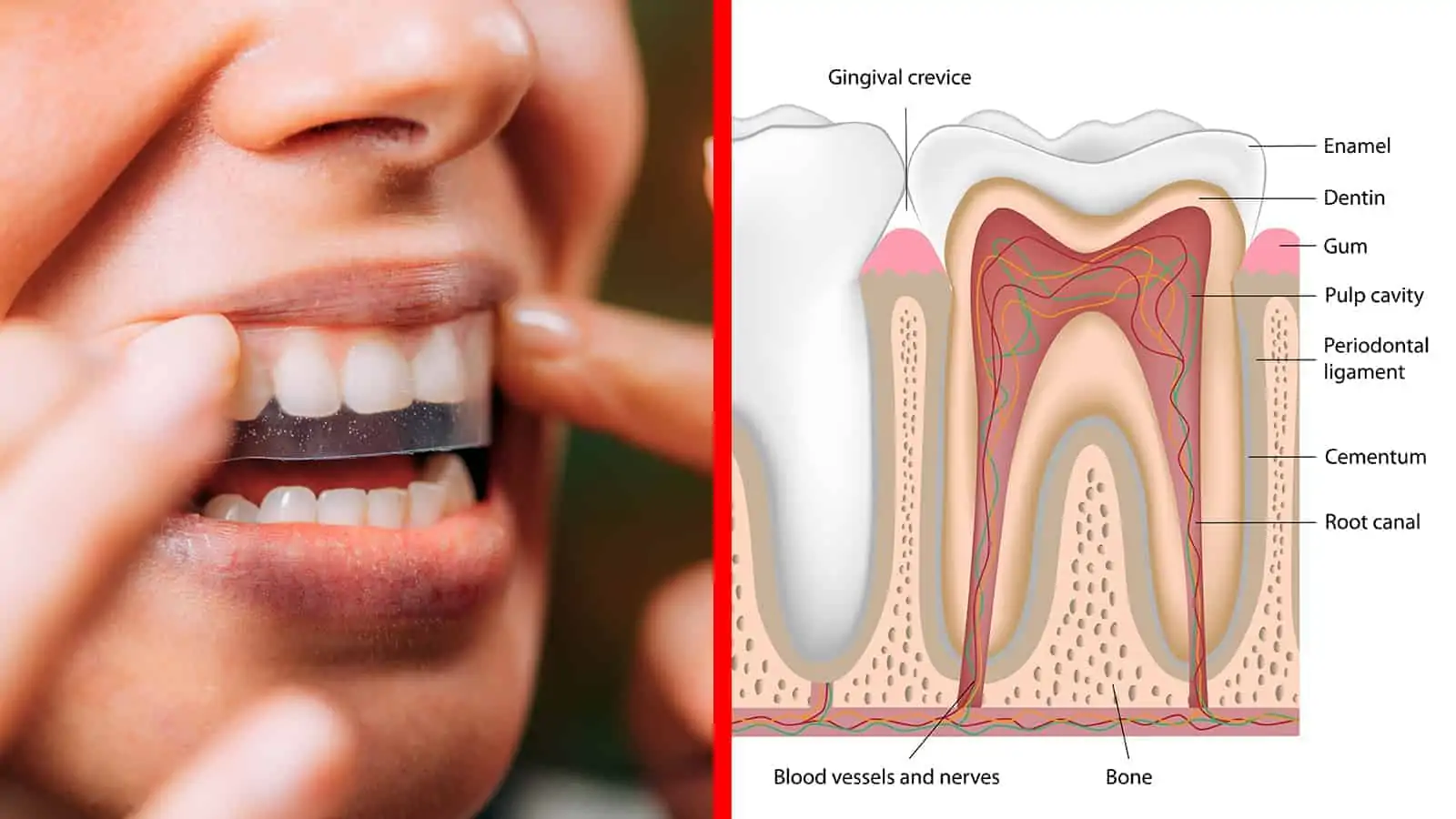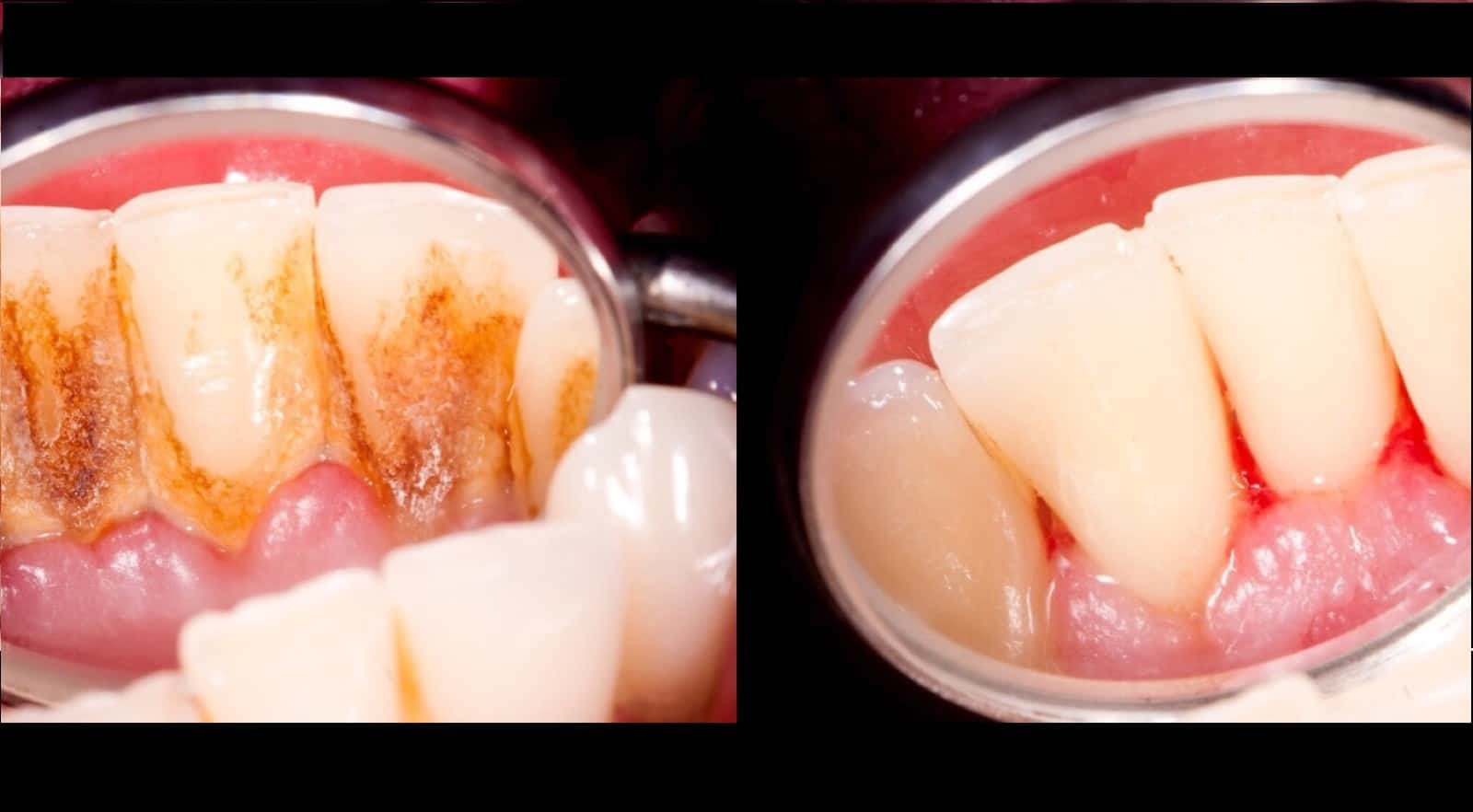Plaque is a sticky film of bacteria that forms on teeth and can lead to many oral health problems if not removed regularly. When plaque builds up, it can cause tooth decay, gum disease, and bad breath. Over time, it can harden into tartar, which is even harder to remove and can only be removed by a dental professional. Removing plaque through daily brushing and flossing can help prevent these issues and maintain good oral health. It’s important to note that even with regular brushing and flossing, some plaque can still accumulate, so regular dental check-ups and cleanings are crucial for maintaining healthy teeth and gums.
Taking proper care of your mouth, i.e., teeth and gums, should be considered a health priority, as good oral hygiene can help prevent bad breath, gum disease and tooth decay. Good oral hygiene also helps to protect your teeth in your later years.
Research studies have linked poor oral health to some serious diseases. Here are three noteworthy discoveries:
- In 2010, researchers from New York University discovered a link between gum inflammation and Alzheimer’s disease.
- A Harvard University research team found strong evidence of a link between gum disease and pancreatic cancer.
- A well-established correlation exists between dental hygiene and heart disease.
How plaque and tartar form in the mouth
Dental plaque is a sticky, colorless film that forms on the teeth and along the gumline. It is primarily composed of bacteria, food particles, and saliva. Plaque constantly forms on the teeth throughout the day and can accumulate within hours of brushing. If plaque is not removed regularly, it can lead to dental problems such as tooth decay and gum disease.
Tartar, or dental calculus, is hardened plaque mineralizing over time. When plaque is not effectively removed through brushing and flossing, it can mix with minerals from saliva and harden into tartar. Tartar is usually yellow or brownish and forms above and below the gumline. Unlike plaque, tartar cannot be removed by brushing and flossing alone. It requires professional dental cleaning by a dentist or dental hygienist to remove.
Tartar provides an ideal surface for plaque to adhere to, making it more challenging to maintain good oral hygiene. The presence of tartar also irritates the gums and can contribute to gum disease. Regular dental check-ups and professional cleanings are essential to remove tartar buildup and maintain oral health.
NOTE: This article acknowledges that you must remove the plaque buildup to prevent tartar. While we may use them interchangeably, it’s worth noting the differences.

What to do about plaque build-up
The first step is to start properly caring for the teeth and gums. Here are the teeth brushing basics, per the American Dental Association (ADA):
- Brush your teeth twice daily. Take the time to do a thorough job (don’t rush).
- Use proper equipment. Use good toothpaste with a soft-bristled toothbrush. Battery-operated and electric toothbrushes may reduce plaque and mild gum disease better than manual brushing.
- Use proper technique. Hold the toothbrush at a slight angle – toward the area when the tooth meets the gum line. Brush the chewing surfaces, inside and outside of the teeth and the tongue.
- Maintain your equipment. Properly rinse and store the toothbrush in an upright position until the next use. Don’t cover the brush with anything, as this can encourage the growth of bacteria.
- Replace your brush. Replace your brush every three to four months, usually when the bristles frayed.
- Floss your teeth daily.
- Take about eighteen inches of floss and wrap the ends around your middle fingers, leaving about one to two inches of floss to work with.
- Use your index fingers to guide the floss between your teeth, gently sliding it up and down against the side of each tooth and under the gumline.
- Use a clean section of floss for each tooth, and be sure to floss both sides of every tooth, including the back molars.
Natural Ways to Remove Plaque From Your Teeth
Some people prefer using more natural methods for oral hygiene. For example, you can make your own mouthwash and toothpaste at home!
Preparing homemade mouthwash is simple and efficient. Additionally, self-made mouthwash isn’t loaded with alcohol and other chemicals. We’ve included four simple recipes for making your oral care products. As you’ll see, all of these ingredients are widely available, inexpensive, and healthy.
They’re also effective at helping remove tartar and other bacteria from the mouth. So, let’s get going!
 Tartar removing recipe #1
Tartar removing recipe #1
- Ingredients: anise, mint oil, lemon, water.
- Mix a few drops of each ingredient in a glass of water and rinse four to five times daily.
Plaque and tartar Removing Recipe #2 (perfect for built-up plaque)
- Ingredients: A half-cup of rosemary, one cup of fresh mint, and two cups water.
- Bring the water to a boil, then add the mint and rosemary. Leave the mix for about fifteen minutes, and then drain. When the mix is cool, rinse your mouth thoroughly.
Tartar removing recipe #3 (natural toothpaste; good for plaque removal)
- Ingredients: Seven tablespoons (tbsp.) of coconut oil, seven tbsp. of baking soda, essential oil (tea tree oil and clove essential oil work wonderfully!), 1 ½ tbsp of Stevia.
- A 2014 study discovered the following about essential oils: they efficiently inhibit plaque, can be used with dental implants, and also inhibit certain problematic bacteria strains.
- Unrelatedly (but to our benefit!), the scent of lavender oil reduces anxiety and stress!
- Mix all ingredients until the paste has a consistent texture. Use this natural mixture every day instead of regular toothpaste, if desired.
Tartar removing recipe #4:
- Ingredient: coconut oil (that’s all!).
- Dentists and other oral health practitioners have lauded coconut oil for its numerous benefits – fighting bacteria, cleaning the mouth’s orifices, preventing cavities, and whitening teeth.
- Swish around a couple of tbsp. of coconut oil and allow the substance to melt for fifteen to twenty minutes. Rinse with coconut oil daily to improve and maintain oral health!

Final Thoughts: Removal of Plaque Is Essential to Lifelong Dental Health
Removing plaque from your teeth is imperative to keep your teeth shiny, white, and, most importantly, healthy. These homemade mixtures can help you have cleaner teeth and fresher breath. To your health!

















